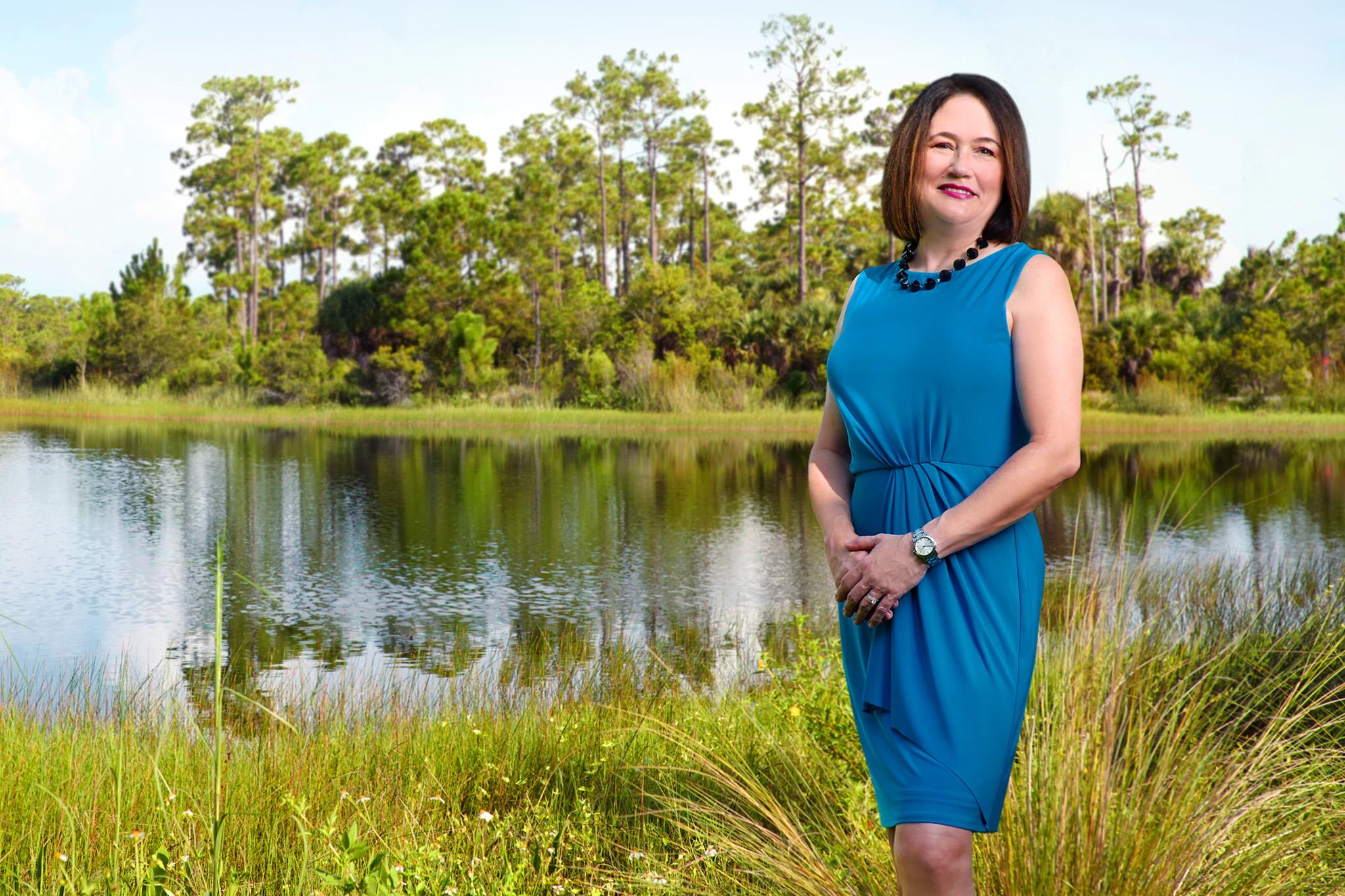After a nationwide search, Denver Botanic Gardens today announced its next CEO.
Donna McGinnis currently leads Naples Botanical Garden on Florida’s Gulf Coast. She will start Feb. 2. While she has tried growing orchids at home, which are notoriously finicky, her expertise is in museum fundraising and diversifying visitorship.
McGinnis succeeds the late Brian Vogt, who died of cancer in March at age 66. He had helmed Denver’s gardens since 2007 and oversaw impressive growth in facilities, visitors, and members. The institution counted nearly 1.5 million visitors in 2024, with nearly 60,000 members.
“I was lucky enough to know him as a colleague and a friend,” McGinnis told CPR’s Colorado Matters. “Those are big shoes to fill.”
How does she plan to fill them? Below are five takeaways from McGinnis’ conversation with Colorado Matters’ Senior Host, Ryan Warner. Answers have been lightly edited for length and clarity.
On the role of botanic gardens:
It needs to be everybody's garden. We're often the place where people come to celebrate. Maybe you come every year with your mother on Mother's Day. We're often a place where you reflect after a tough diagnosis or something difficult that's happened in your life. Very often we're the place people go for a remembrance when something's happened in a community. And we're a great place to learn and to recreate. When it comes to being available to everybody, I really admire how this garden has done that.”
On barriers that keep people from visiting:
Sometimes it’s ‘Can I afford the entrance fee with the budget I have set aside for fun and recreation?’ Sometimes it's transportation. ‘Can I get there?’ And sometimes it’s ‘I don't know if that's for people like me.’ So it’s really important to welcome and reflect the community in language, culture and food.
I'll give you an example from my experience at the Garden in Naples. It’s a community with a very large Haitian expat population. Haitian Creole is the third most spoken language in the state. That audience wasn't showing up, and in working with leaders, we came to understand we had to be welcoming in that language. So at this garden, you'll find everything in English, Spanish and Haitian Creole. We celebrate Haitian Flag Day. We're closely connected with the pastors of the Haitian churches. I think what you see happening at Denver Botanic Garden is very similar — most recently, the huge celebration of Día de los Muertos both inside the garden and outside of it too.
On federal cuts to arts and science:
Denver Botanic Gardens has probably weathered this change better than most of the large gardens in the U.S. who had all of their eggs in that federal grant basket. But I think now, especially with the cuts that we're seeing at the federal level, it becomes more important than ever for us to diversify funding sources. We have to be focused on the individuals who care about this work … everyone from the member that renews every year to the companies who want to be sponsors, but also those thoughtful individuals and foundations who get the science or the investment in the next program and are willing to put their dollars there. It becomes our job to find them and to put the right ideas in front of them and then steward those relationships.
On her favorite plant:
I grew up in the Pacific Northwest and I'm really a tree person. So I would say the Sitka spruce, which is this fantastic evergreen. When I go back to visit my family and we're driving on the highway in western Washington, it's one of those things you see in the mountains, but even lining the highways as you head for home. It's just one of those beacons for me.
On a plant she killed (by accident):
I would have to say my learning curve with orchids — living in Florida — was dicey. I tried so hard to grow orchids, and then I came to understand that you can try too hard and love them to death. So I have one piece of advice to share from the tropics: Don't put an ice cube on your orchids to water them. Once I stepped back and let the orchids do what they wanted to do —and in Florida you can leave them outdoors — they flourished. But I have to admit, I killed many an orchid in my early days. Orchids are sort of like cats. They're going to bloom when they want and don't care when you want them to bloom.












